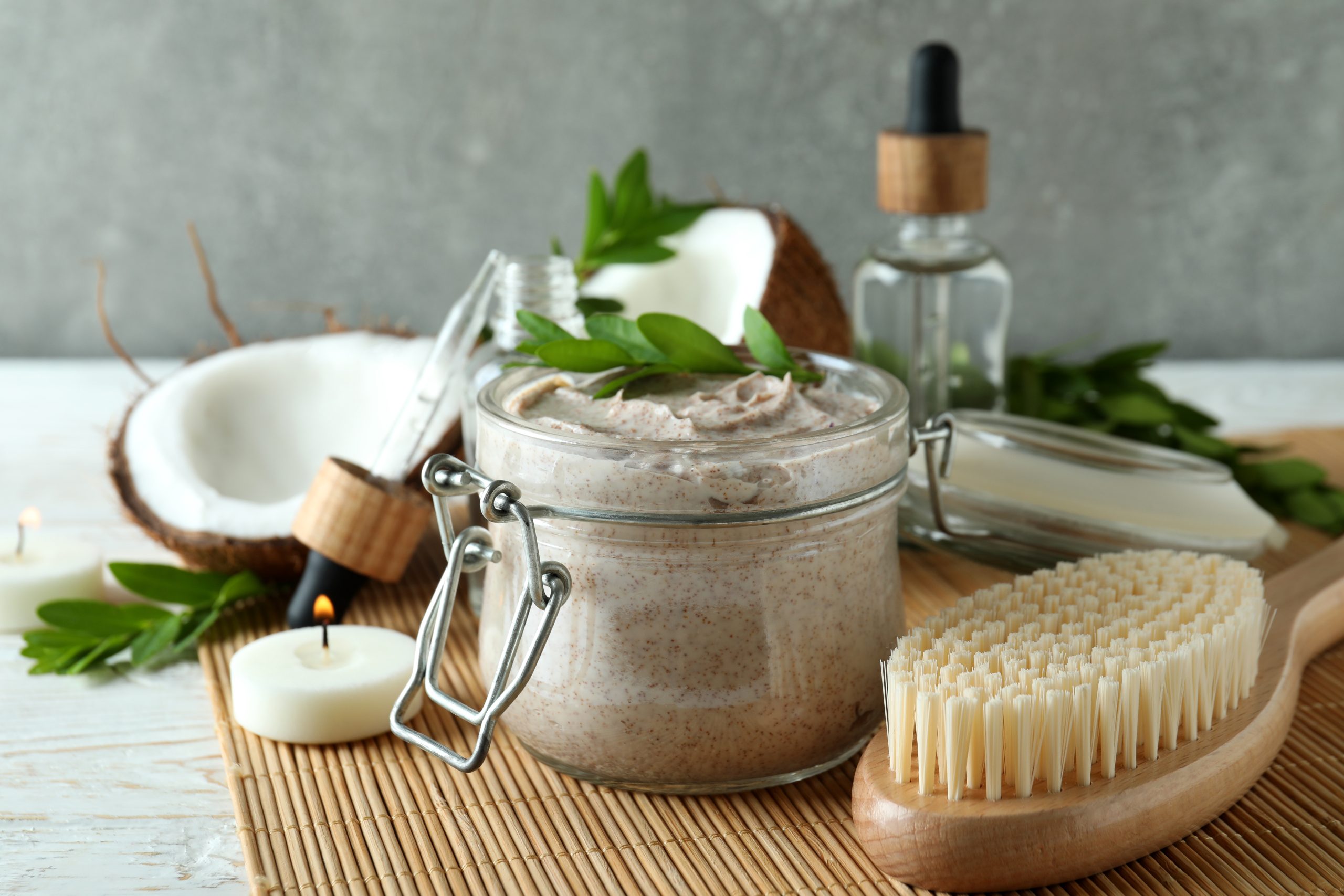What is Exfoliation and Why is It Important?
- Dead Skin Cell Buildup
As skin cells regenerate, dead cells accumulate on the surface, leading to a dull complexion, clogged pores, and uneven texture. Exfoliation removes these cells, allowing newer, healthier skin to emerge. - Increased Product Absorption
Removing dead skin cells allows skincare products like serums and moisturisers to penetrate more deeply, enhancing their effectiveness. - Prevention of Acne and Breakouts
Regular exfoliation can help prevent breakouts by clearing away the debris that clogs pores. However, excessive exfoliation can irritate acne-prone skin, so balance is key.
Types of Exfoliation
- Physical Exfoliation
This involves using granular scrubs, brushes, or sponges to physically slough off dead skin. Common ingredients include sugar, salt, and ground nut shells. Physical exfoliation provides instant results but should be used gently to avoid micro-tears in the skin. - Chemical Exfoliation
Chemical exfoliants use acids like AHAs, BHAs, or enzymes to dissolve dead skin cells. AHAs are generally suitable for dry or sensitive skin, while BHAs are oil-soluble, making them effective for oily or acne-prone skin. - Enzymatic Exfoliation
This is a gentler type of chemical exfoliation, using natural enzymes from fruits like papaya or pineapple to break down dead skin. Ideal for sensitive skin, enzymatic exfoliation offers a mild alternative to stronger acids.
How Often Should You Exfoliate?
Based on your skin types:
- Dry or Sensitive Skin
For dry or sensitive skin, exfoliating 1-2 times a week is recommended, using a gentle product. Over-exfoliating can compromise the skin barrier, leading to redness and irritation. - Oily or Acne-Prone Skin
Oily or acne-prone skin can handle more frequent exfoliation, about 2-3 times a week. BHAs are particularly beneficial for penetrating pores and controlling oil production. - Combination Skin
For combination skin, adjust the exfoliation frequency according to the needs of different areas. Exfoliating 2-3 times a week generally works, but monitor the skin’s response to avoid over-exfoliation.
Benefits and Potential Risks of Exfoliation
- Benefits
Exfoliation promotes a brighter, smoother complexion and helps with acne control by keeping pores clear. It also boosts cell turnover, contributing to more youthful-looking skin over time. - Potential Risks
Over-exfoliation can damage the skin barrier, causing dryness, irritation, and heightened sensitivity. Always follow produc
Tips for Safe and Effective Exfoliation
- Listen to Your Skin
If your skin feels irritated or sensitive, reduce the frequency of exfoliation. Healthy skin should feel smooth, not tight or overly dry. - Avoid Sun Exposure
Exfoliation can make skin more sensitive to the sun. Always apply sunscreen after exfoliating to protect your skin from UV damage. - Moisturize After Exfoliating
Exfoliating removes dead skin but can also strip moisture. Applying a good moisturizer afterward helps replenish and protect the skin barrier.
Conclusion: Find Your Perfect Exfoliation Routine
Exfoliation is a valuable addition to any skincare routine, but finding the right balance is essential. By understanding the science of exfoliation and choosing products suited to your skin type, you can enjoy smooth, radiant skin without the risk of irritation. Regular yet gentle exfoliation keeps your skin looking fresh and healthy.


